
In this late New Years' chapter of TypeRight, we recap the developments of the past year across digital rights and access, and also take a look at our work on the same as we enter the twenty-second year of our founding.
2023 was not the greatest year as far as digital or democratic rights are concerned. But before we get to those bits, let us look at some of the more welcoming news.
As India hosted the G20 conference in Delhi, one of the several highlights was India's Digital Public Infrastructure.
As part of the New Delhi Declaration, it was recognised that digital public infrastructure, including technology that India has developed, would play a significant role in accelerating the international attempt towards the Sustainable Development Goals.
These first-of-their-kind public resources can assist countries to build their DPI, and help to ensure that all communities, everywhere, can reap the many benefits of our burgeoning digital world. We hope that these resources will inspire countries to consider the many possibilities that DPI can offer as a means to accelerate progress on the SDGs
Take a look at an earlier TypeRight where we talked about the Delhi Declaration:
Quoting the World Bank report:
“The UPI platform has gained significant popularity in India; more than 9.41 billion transactions valuing about Rs 14.89 lakh crore were transacted in May 2023 alone. For the fiscal year 2022–23, the total value of UPI transaction was nearly 50% of India’s nominal GDP”
New ways to remain connected are also in store, with air-fiber and satellite broadband tech set up to be more mainstream.

The above doodle is from GC3B - Global Conference on Cyber Capacity Building - held in Accra late last year, highlighting the necessity of building 360 degree cyber capacity considering the massive onslaught of cyber risks of crime, safety, security, misinformation, disinformation, hate speech, fraud, and so on. DEF was invited to speak in the plenary and share the community level challenges of comprehensive capacity of cyber pervasiveness. More details can be found at https://gc3b.org.
Now, for the decline:

While we talk about the spread of Digital Public Infrastructure, and the position India is in to export and share our technologies, we must also be critical of how India has been dealing with our basic internet infrastructures. From a ToI article:
According to a report by Comscore, the number of internet users in India and India’s overall digital consumption has seen a decline in 2023. The digital consumption data shows that less than half of the country’s population has access to the Internet ...
However,
...as of September 2023, total internet users in India were 510 million with 2,215 billion minutes spent on the internet.
Which says nothing more than the gradual increase in connectivity- we are lagging behind if half the population remains unconnected. To add to this, we have -
Internet shutdowns Manipur, and other areas:
2023 was the year India saw the second-longest internet shutdown in its entire history. Since violence erupted on 3 May, Manipur has been plunged in digital darkness that has reportedly had a chilling affect on the livelihoods and education plans of many in the northeastern state. On 23 September, the Biren Singh-led state government lifted the ban on mobile internet access – only for it to be reimposed two days later.

Manipur has been witnessing violence for over a year now, with violence mostly targeted at the hill-community there.
A lack of internet does not help either the resolution of conflict, nor the people, nor the economy. We had written in detail earlier, here:
The next issue of concern from 2023 is a series of legislations, both as draft bills and acts passed in the parliament.
But what exactly happens in the parliament? And what are the IPC-CRPC revamp?
...the suspensions prevented nearly a quarter of all elected legislators from debating or voting on several key bills. By evening, the lower house of Parliament had approved bills on criminal justice reform and telecom services. (NPR)
The Telecommunications Bill, 2023, which restructures the regulatory framework of the telecom sector, was passed within three days of introduction. It was discussed for one hour and four minutes in Lok Sabha and one hour and 11 minutes in Rajya Sabha. Three Bills replacing the Indian Penal Code, 1860, the Code of Criminal Procedure, 1973, and the Indian Evidence Act, 1872 were discussed and passed. The three Bills were discussed for nine hours and 28 minutes in Lok Sabha and six hours and eight minutes in Rajya Sabha. 34 members participated in the discussion in Lok Sabha, 25 of whom belonged to BJP. In Rajya Sabha, 40 members participated, of which 30 members belonged to BJP. (TheWire)
What does the revamp and replacement entail?
From the IFF's statement: "Three bills overhauling current Indian criminal laws, namely the Bharatiya Nyaya (Second) Sanhita, 2023 (“BNS”), Bharatiya Sakshya (Second) Bill, 2023 (“BSB”), and Bharatiya Nagarik Suraksha (Second) Sanhita, 2023 (“BNSS”), were passed by both houses of the Parliament in the 2023 Winter Session, and have now received Presidential assent. The bills contain several provisions that threaten our fundamental rights to privacy and free speech. The review and recommendations of the Parliamentary Committee on Home Affairs also did not adequately address these shortcomings."
One particular aspect of the BNSS will have a significant impact on civil liberties but it has barely received any attention. The massive expansion of the possible duration of police custody in the BNSS strikes at the very heart of civil liberties protection. The BNSS expands the maximum limit of police custody under general criminal law from 15 days to either 60 days or 90 days (depending on the nature of the offence). Under our current law, police custody is limited to the first 15 days of arrest. The expansion under the proposed BNSS heightens the risk of exposure to police excesses. Given widely acknowledged concerns about the safety of arrested persons in police custody, and the heightened risk of coerced and fabricated evidence after prolonged detention, this provision of the BNSS is a shocking expansion of police powers. (The Hindu)
The sweeping new police powers must not be seen in isolation - it must be read along with the other bills passed.
Telecommunications Bill/Act:
We had taken a look at this earlier while it was still a bill, but a lot has changed in the time it was passed in parliament,
In all of these proposals and laws, the same model of vague drafting, centralisation of power through delegated rulemaking is proposed. Second, the government is failing to answer the clear challenges of rising inequality that manifest in digital India. For instance, it has failed to address or even acknowledge the sluggish pace of growth in the number of new mobile and data users in India. (Apar, TheWire)
Draft Broadcasting Regulations Bill
As TheWire reported, "The broadcasting bill seeks to regulate broadcasting services over television, internet, and radio, allowing the government to regulate or censor content. The bill empowers the union government to delete or modify programmes."
The problems lie in the vague definition of OTTs- the draft bill extends application to “internet broadcasting networks” - the provision to include news content. So who falls under this provision is not just the journalist - already strong censorship alarm bells ringing- but also the person who shares the news.
Here is what IFF identifies as the clauses of concern:
The Central Government, may, for the fulfilment of such social objectives, as may be prescribed, allow registration or intimation as a broadcaster or broadcasting network operator..... [Clause 4(4)]
Every broadcaster and broadcasting Network Operator shall ensure that: (a) he transmits programmes in compliance with such terms and conditions and in such manner as may be prescribed. [Clause 5(1)(a)]
Any cable broadcasting network operator, satellite broadcasting network operator, IPTV network operator or such other broadcasting network operator, as may be prescribed, who intends to provide Platform Services on their registered broadcasting network may apply for permission to broadcast Platform Services to the registering authority in such form, manner and containing such particulars as may be prescribed. [Clause 7(1)]
Any programme transmitted or re-transmitted as broadcasting services shall be in conformity with the Programme Code, as may be prescribed. [Clause 19(1)]
Any advertisement transmitted or re-transmitted as broadcasting services shall be in conformity with the Advertisement Code, as may be prescribed. [Clause 19(2)]
Any person providing an OTT broadcasting service in India, with such number of Indian subscribers or viewers as may be prescribed, shall, within a period of one month from the notification of this Act or its meeting the prescribed threshold, provide an intimation to the [Union] Government of its operations, in such form and manner as may be prescribed. [Clause 16(2)]
The Broadcast Advisory Council, may, constitute review panels, with such number of members and such composition, as may be prescribed, to carry out its functions referred in section 28. [Clause 19(1)]
The terms and conditions related to the appointment of members to the Broadcast Advisory Council, the manner of their selection, tenure and the manner of performance of their functions shall be such as may be prescribed. [Clause 27(4)]
Data Protection Bill
While we have already covered this one year ago, the bill has now been passed into becoming an act last august.
Here's a reminder of how our law differed from the much celebrated EU's GDPR:

This is what we concluded then:
The new bill has mostly paved the way to set up a framework that legitimises a 'data economy' which might sell personal data, allow the state several levels of surveillance, while also giving immunity to state agencies under the name of security.
And this is what IFF had written in their statement:
In its present form, the DPDPB, 2023 does not sufficiently safeguard the Right to Privacy and must not be enacted. There must be meaningful discussion and debate on the draft bill in the Parliament, including a referral to an appropriate committee which may further seek public inputs in the course of its deliberations to redraft the bill such that it protects citizens’ privacy.
Read more about it:
Freedom of Speech Violations: Apple-Gate/Pegasus 2023 edition
This needs less introduction as we already wrote about this earlier-
Our latest findings show that increasingly, journalists in India face the threat of unlawful surveillance simply for doing their jobs, alongside other tools of repression including imprisonment under draconian laws, smear campaigns, harassment, and intimidation. Despite repeated revelations, there has been a shameful lack of accountability about the use of Pegasus spyware in India which only intensifies the sense of impunity over these human rights violations.
Fact-checking PIB

India is one of the leading countries dealing with a disinformation deluge.

And how does the government think this can be tackled?
- by opening their own fact-checking unit. Just that it only deals with criticisms of the government itself.
So this makes the 'fact-checking' unit the sole arbiter of truth, and there are very good reasons to think this is not great for any democracy to have.
And to add to it, the action rate of PIB with queries received are less than 1%.
So, who checks the fact-checker? What systems of accountability are in place?
This article sums up how "give the Union government power to censor news content, imperil encrypted communication, make it easier to shut down the internet, and intercept communications with minimal accountability."

Palestinian Genocide:
With over 23,000 killed by the Israeli Occupying Forces - most of them women and children- and most of the Gaza strip denied of basic facilities including water, electricity, rations, internet, medical services; with close to 120 journalists slain, and over 2 million people displaced with several losing their homes - many have called the situation in Gaza a genocide that we are watching in real-time, being broadcasted on the internet, and yet one where the international community has taken little action on.
South Africa, a country that has battled an apartheid regime in the past, has called out Israel on their deeds and taken them to the international court at the Hague.
While the court's decision is pending, the above article also notes this:
The world court, which rules on disputes between nations, has never judged a country to be responsible for genocide. The closest it came was in 2007 when it ruled that Serbia “violated the obligation to prevent genocide" in the July 1995 massacre by Bosnian Serb forces of more than 8,000 Muslim men and boys in the Bosnian enclave of Srebrenica.
Hottest Year on record:
With several floods, forest fires and other natural disasters that are linked to climate change, the world has witnessed the hottest recorded temperatures last year since the industrial revolution.
This is worrisome, as we are getting closer to the breakaway level temperature beyond which climate change could become irreversible and catastrophic to the planet.
In 2015, in response to the growing urgency of climate impacts, nearly every country in the world signed onto the Paris Agreement, a landmark international treaty under which 195 nations pledged to hold the Earth’s temperature to “well below 2 degrees Celsius above pre-industrial levels,” and going further, aim to “limit the temperature increase to 1.5 degrees Celsius above pre-industrial levels.”
The slightest shimmers of hope comes from the Amazon rainforests in Brazil, a crucial part in maintaining the global balance - nicknamed the lungs of the earth. In the one year after right-wing leader Jair Bolsanaro was ousted in the elections, the new government has taken emergency steps to reign in on deforestation there- and is seeing success:
Here's a recap from TheQuint:
And now, for DEF's year in review:
It has been twenty-three years of our work in DEFending the margins and reDEFining their access to internet, tech and connectivity.
This year started with the stark understanding that digital isn’t just technology; it’s life, medium, innovation, and marketing. But who controls and benefits from this digital life? Whose stories remain untold? These questions shaped our journey. Our work revolves around enabling the poorest to access health recommendations without visiting doctors, delivering jobs to them, facilitating direct transactions, and ensuring fair returns to artisans. In our 21st year, we expanded to 26 states in India and the Digital Empowerment Foundation took its first steps on the ground in Africa! A Community Information Resource Centre was established in Muranga's County, Kenya. Recognizing the importance of digital communication infrastructure, DEF emerged to elevate stories from rural areas and place them atop the pyramid. The stories you see today are the stories of 30 million community members who have been touched through our efforts of digital inclusion and digital development. (From our Digital Footprints Blog)
Take a look at our Blog to see the full work we did last year:
From book releases, Digital Citizen Summit, the Global Digital Compact submission, our centre in Kenya, and more!
Take a look at two of our books published at the Digital Citizen Summit in T-Hub, Hyderabad, last year here and here.


And what happened at the Digital Swaraj Festival, written in detail here:
And finally, here's what our Founder and Director Osama has to say on what our team aims for this year and ahead into the future:

The biggest challenge that DEF has taken onto itself is to cover the country's backward districts to ensure that every village has access to digital resource centres through the SoochnaPreneur model. While DEF has reached 2000 locations covering 10,000 villages in 135 districts of 26 states, it aspires to establish 1500 more digital centres in the next 1-2 years.
Another aspect that DEF is concerned about is ensuring that grassroots communities have access to the right information so every SoochnaPreneur will be an information gatekeeper and trustee for the citizens to trust them for reliable and trusted information.
(Read more about the SoochnaPreneurs, the roots and the foot-soldiers of our organisation here )

Ending this week's edition with this message:

And some clippings for your reading…


More soon.

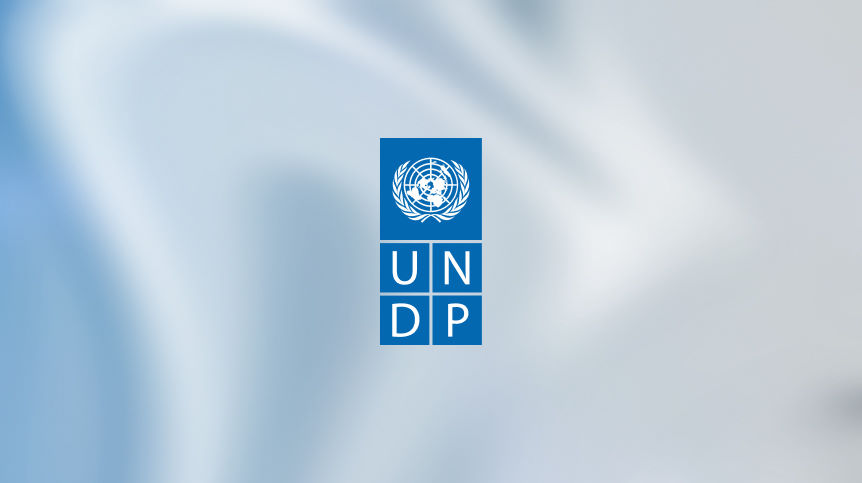




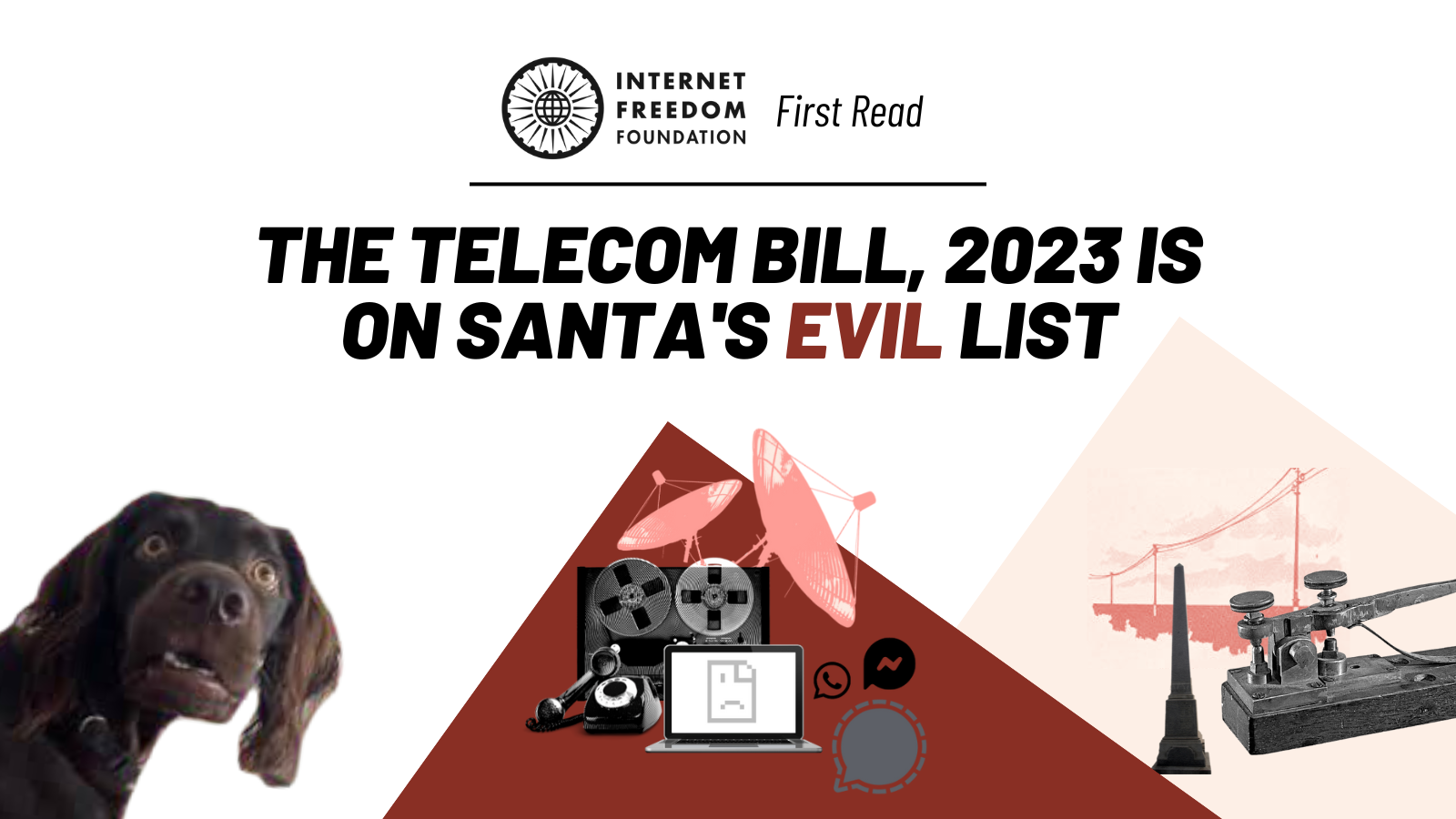
































 might be?](https://sk0.blr1.cdn.digitaloceanspaces.com/sites/1394/posts/714526/dbc8de4c-5c50-411f-aba0-55cfb74a692d.jpeg)

Write a comment ...